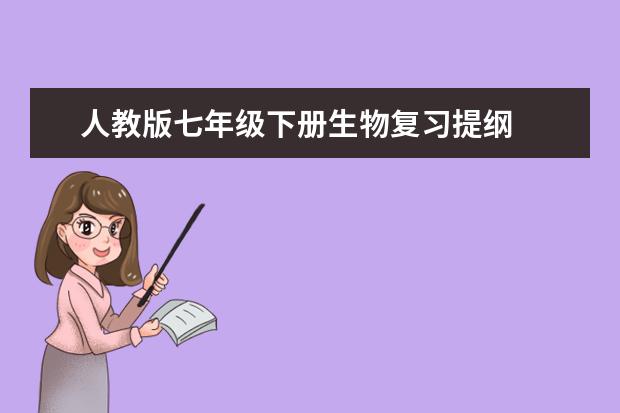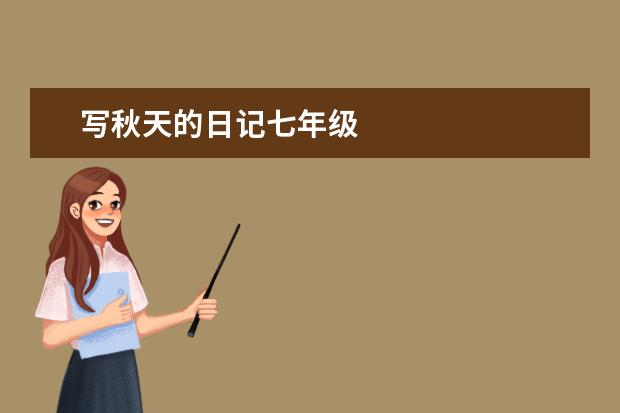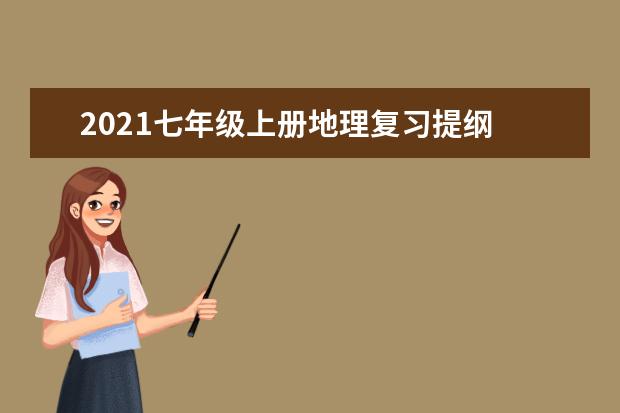今天天天高考网小编整理了译林七年级上册英语知识点相关信息,希望在这方面能够更好的帮助到考生及家长。
知识分子的标准,知识分子全都住在纽约的格林威治村,愤世嫉俗,行为古怪,并且每 个人 都以为 自 己是世界上最后一个知识分子。下面是由小编为大家整理的译林 七 年级 上册 英语 知识,仅供参考,欢迎大家 阅读 。
译林七年级上册英语知识1
1.e-dog 电子狗 e是electronic的缩写 an e-dog 一条电子狗
2. master 名词:
主人/大师 形物/名词所有格+ master …的主人master (s) of … 的主人
3. love, like & enjoy 区别 :
like指一般意义上的“喜欢”love 热爱,喜爱 感情更为强烈=like… very much
enjoy 在喜欢的基础上更有欣赏的意思。enjoy doing sth 喜欢做某事
like/love sth/sb 喜欢某事/某物
like/love doing sth.喜欢做某事(习惯性动作)
like/love to do sth 喜欢做某事(一次性的未发 生的 动作)
like 还可作介词,像….
4. name 名字 What+be动词+形物/名词所有格+ name(s)?
5.look after= take care of 照顾
look after….well = take good care of… 好好照顾….
look at 看着… look for 寻找… look out 小心…
look out of… 从…朝外看
look up 查找… look like 看起来像…
look in 顺便访问… have a look 看一看
6. how to +V原
如何做某事 特殊疑问词+ to +V原 Where to go What to do
7. read, look, see , watch, look at区别:
read“看,读” 带有文字的资料
read books 看书
read newspapers 看报纸
look 看 强调“看”的 动作。Look! The bus is coming.
see 看见 强调“看”的结果。
I can see a bird in the tree. 还可表示:明白。I see.
watch全神贯注地“观看,注视” Watch TV/ a football match/a film.
look at.. 看某物…
8. glad 形容词. 高兴的(不能做定语)近义词: happy ,pleased 等
Glad to see you. = Nice to see you. =Pleased to see you. 见到你很高兴。
be glad/nice/ happy to do sth 乐意做某事
9.grade 名词:年级 当 grade +数字时 首字母需 要 大写,数字用英语表达,也要大写。
Class one ,Grade Seven 先说班级后说年级
对班级/年级提问:What/Which class/grade
10.let sb do sth 让某人做某事 let’s= let us (动宾结构)
11. slim 形容词:苗条的 与 fat 意思相反。动词:lose weight
12. be good at 擅长于… be good at sth/doing sth= do/does well in sth/doing sth.
be good for … 对… 有益的;be good/nice to 对…友好
13.welcome
名词:“欢迎,款待”, warm welcome 热烈欢迎
动词:意为“欢迎(某人或某事物)” welcome to +地点 欢迎到某地
welcome back to sw. 欢迎回到某地 welcome sb to +地点 欢迎某人到某地
形容词:受欢迎的 a welcome teacher 一位受欢迎的老师
You are welcome 不用谢。
14. year 年 in a year 在一年里 in the year of 2020 在2020这一年
15. 基数词+days/months/years+old 表示“…天/月/岁”
5 months old 5个月大
12 years old 12岁 A 12-year-old boy 一个12 岁的男孩
16. be from = come from 来自….
be born in+时间/地点 出生在…
17.over 副词:穿过 go over the mountain 穿过那座山
介词:在..的上方;在…期间
18.everyone 和 every one 的区别:
everyone = everybody后通常不接of, 只用于人.
every one 一般和of 引起的 短语 连用, 既可以表示人也可以表示物。
19. glasses n. (复数)眼镜 a pair of glasses 一副眼镜
glass “玻璃” 不可数名词 “玻璃杯” 可数名词 two glasses of juice
20. help 用法:
help sb do sth. 帮助某人做某事 help sb with sth 帮助某人某事
21. say, speak, talk, tell 的区别
say 一般作及物动词用,着重说话的内容. say “hi” to sb
speak 强调说的动作,不强调所说的内容。Speak English/Chinese
talk 意思是“交谈,谈话,强调两者之间的相互说话 talk about sth/sb talk with sb talk to sb
tell 意为“讲述,告诉 tell sb sth.= tell sth to sb. tell sb to do sth
22. all 和both 的区别 all用于三者或以上都 both 用于两者都
语法:连系动词be 的一般现在时
动词be 的三种具体变化形式(一般现在时):am ,is ,are.
我 (I) 用am , 你(you)用are , is 用于他(he)她(she)它(it);单数名词用is,复数名词都用are。
句型结构:
1、 肯定句:主语+am/ is/ are … It is a football.
2、 否定句:主语+am/ is/ are+not… It is not a football.
3、 一般疑问句:Am/ Is/ Are+主语+其他?
Is it a football? 回答 Yes, it is. / No, it isn’t
4、特殊疑问句:疑问词+am/is/are +主语+其他?What’s your name?
短语归纳
1、look after / take care of 照顾
2、on the first day 在第一天
3、Class 1,Grade 7 7年级1班
4、play football 踢 足球
5、after school 放学后
6、be /come from 来自
7、be good at / do well in 擅长
8、fly kites 放风筝
9、go home 回家
10、listen to music 听 音乐
11、play a game 玩 游戏
12、wear glasses 戴眼镜
13、at school 在 学校
14、all the lessons 所有的课程
15、talk about 谈论
16、over there 那里
17、a lot of hobbies 许多 爱好
18、get to know 认识
重点句型归纳
1. What’s your name?你叫什么名字?
2. Nice to meet you! 很高兴见到你。
3. I love reading. 我喜欢阅读。
4. Now let’s get to know some of the new clas*ates.
现在让我们认识下我们的新同学。
5. I often play football after school. 放学后我经常踢足球。
6. She is tall and slim. 她个头很高,身材苗条。
7. He is from Nanjing. 他来自南京。
8. He is good at Maths. 他擅长于 数学 。
9. Millie is 11 years old. 米莉11岁。
10. They are all very nice. 他们都很好。
译林七年级上册英语知识2
1、enjoy doing sth.喜欢做某事(不用enjoy to do sth)
enjoy oneself= have( a lot of) fun= have a good time玩得开心
名词:enjoyment 享受,欣赏,乐趣 形容词:enjoyable 令人快乐的
2、walk to sp. = go to sp. on foot
(walk home=go home on foot) have/ take a walk 散步
take sb (out)for a walk 带某人出去散步 go for a walk 去散步
go out for a walk 外出散步
3、your favourite sport 你最喜爱的运动(形容词性物主代词/名词所有格+favourite+名词)favourite=like....best
4、What about/How about… …怎么样?(后接名词、代词或动名词,用来询问情况或征求 意见 或提出 建议 。)
What about you?= How about you? 你呢?
How/What about sth? What about some milk?喝些牛奶怎么样?
What /How about doing sth?
做某事怎么样?=Why not +V 原形?=Let’s +V原形. =Shall we+V原形
What/How about going swimming? 去 游泳 怎么样?
5、go to+ 地点名词 (除了home/here/there) go to bed/school
go +ving 去做某事
go boating/swimming/dancing/walking 去划船/去游泳/去跳舞/去散步
do some +Ving do some shopping/reading/running 购物 /阅读/ 跑步
6、English Club/sports club/ dancing club
take part in a club=join a club 加入俱乐部
7、hope to do sth 希望做某事
We hope to see a film next week. 注意:不能说hope sb to do sth.
hope +从句 I hope his dream comes true.
8.real和true的区别: real是指事物本身的真假。 It’s made of real gold.
true 是指 故事 、消息、信息等内容是真实的,而非虚构的。
I’m going to tell you a true story.
really 副词 的确,确定(修饰动词,副词或形容词)在口语中,表示惊讶,疑问,恼怒或感 兴趣 oh, really?
9、time 次,回(可数名词)
How many times do you go to the cinema every month?
once= one time twice= two times
time “时间 ,闲暇” (不可数名词)
What’s the time now?
I don’t have any time to chat with you.
in time 及时 on time 准时 from time to time 时不时地,时常
last time 上次 next time 下次
9、be a member of .....=be in the..team/club =play for… team/club
是….队/俱乐部的一员
10、系动词:be动词,look, *ell, sound ,feel, taste +形容词
It makes me feel good.
副词修饰 动词/形容词 He plays football well. /It’s really interesting.
11、also,too,either的区别
also 表示“也,也是” 用于肯定句中,
also (句中,be动词后,行为动词前I also like music.);
too表示“也,也是” 放在肯定句的句末. I like listening to music too.
either 表示“也”用于否定句的末尾。 I can’t swim either.
12、make sb do sth 使某人做某事 make him stand up
make sb adj. 使某人处于某种状态 make us happy
13、come true 变成现实 come on加油
come back 返回,回来 come from来自
14、名词所有格
1)一般情况(包括单数名词和不带词尾s的复数名词)加’s
They are Sandy’s and Lucy’s bedrooms. Children’s Day
2) 带词尾s的复数名词加’
parents’ meeting Teachers’ Day twins’ school bags
3)带词尾s的人名,可加’s或’
注:带词尾s的单数名词,通常仍加’s
15、else常用在特殊疑问词或不定代词之后
what else=what other things 别的事 something else
anything else someone else
16、interested 和interesting的区别
interesting 有趣的(修饰物) an interesting book/story
interested 感兴趣的 (修饰人) sb+ be/get/feel/become interested in sth/doing sth
I am interested in Maths/ singing.
17、different 不同的 反义词 :
same Tom and I are in the same grade, but we are in different classes
be different from 与.....不同 反义词组:the same as 与.....相同
语法:一般现在时
一般现在时:
1)表示经常性或习惯性的动作
2)表示事物或人现在存在的特征、状态
3)表示客观真理、客观事实
4)一般现在时常与often,usually,sometimes,on Mondays,every day等时间状语连用。
动词第三人称单数的变化规律
1)一般情况直接加s
2) 以s,x,ch,sh结尾的动词,加es
3) 以“辅音字母+y”结尾的动词,先变y 为i,再加es
单元重点短语归纳
1、many times a day 一天许多次
2. favourite sports 最喜欢的运动
3.go swimming 去游泳
4.a new member of ..... .....的一位新成员
5.in one’s free time 在某人的业余时间里
6. make sb happy 使某人开心
7.in the next World Cup 在下一届世界杯
8.come true 实现
9.of course 当然
10.walk to school 步行去学校
11.stay at home 呆在家里
12.many of my students 我的许多 学生
13.what else=What other things 其他什么
14.feel great 感觉很棒
15.be different from 与.....不同
16.let/make sb do sth 让/使某人做某事
17.watch basketball matches on TV观看电视上的 篮球 赛
18.look very strong 看起来很强壮
19.at/on weekends 在周末
20. at/on the weekend 在周末
21. talk about/of sth 谈论某事
22.walk to school= go to school on foot 步行去学校
23. play volleyball with my friends和我朋友打 排球
24. play tennis 打 网球
25. play basketball after school 放学后打篮球
26. enjoy/like/love swimming 喜爱游泳
27. my hero 我的英雄
28. every week 每周
29.my favourite football star 我最喜爱的足球明星
30. listen to music 听音乐
31. go/come with you 和我一起去/来
32. love drawing/reading喜爱 画画 /阅读
33.watch our games 看我们的比赛
34. shop at weekends 周末购物
35.stay at home 待在家
36. read a lot of interesting books 读许多有趣的书
37. school basketball team 校篮球队
38. do/play sports 进行 体育 运动
39.many people 许多人
40. study English 学习 英语
译林七年级上册英语知识3
1. which 用作疑问代词,意为“哪一个”。可用在选择疑问句中。
Which is your car, the black one or the red one?
哪辆是你的车,黑色的还是红色的?
2. best 作为形容词表示 最好的 (good 的最高级) Tom is my best friend.
作为副词 表示最,最好的 (well 的最高级) I work best in the morning.
like …best 最喜欢… I like English best.= My favourite subject is English.
like better 更喜欢…. I like football better than volleyball. 比起排球我更喜欢足球。
1. So 连词,意为“因此,所以” 但是注意此时so 和because 不能连用。
It s very cold, so I wore a heavy coat.= Because it s very cold, I wore a heavy coat.
so 副词 如此地,这么, 那么 常放在形容词前,表示程度。Our classroom is so beautiful!
So 副词 这样,如此,用来代替整个 句子 。I think so./ I hope so.
3.What s the date today? = What date is it today?询问日期,常用答语为“It is + 日期”。
What s the date today? 今天几号?—— It s 5(th) November. 11月5日。
【注意】英语中年月日的表达方式与汉语不同,一般采用日月年或月日年的顺序。
4. What day is it today? 今天是星期几? It’s Monday/Tuesday/Wednesday…
5. What time is it? =What s the time? 几点了? It’s eight o’clock.
What time...?是用来询问具体时间点的句型。回答:“It s + 钟点”或钟点。
When 询问的时间比较笼统,不一定为具体的时间,可以是年/月/日/上午/下午
When is your birthday, John? 约翰,你的生日是哪一天?It s February 6th. 是2月6日
6. 时间介词at/in/on区别
at常用在时间点前 at six o’clock 在6点钟
at night/ at noon at Christmas at breakfast/ lunch
in 加一段时间(早上/下午/晚上/季节/月份/年)
in the morning in spring in March, in 2020
on用来表示“在某天或星期几”,或表示“在某天的上、下午或晚上”(含有“特指”的意思)at/ on weekends , on the afternoon of November 21st 在11月21号下on a cold winter evening
7. meeting 会议,*(可数名词) parents’ meeting 家长会
have meetings 开会at the meeting 在会议上 have a sports meeting 举行运动会
meet 动词 见面,遇见 Let’s meet at the school gate. meet with sb 遇见某人
8. show 动词 引,带,领 ,给…看 show sb around (sp.) 带某人参观某地
show sb sth= show sth to sb 把某物给某人看
9. want = would like 想 want/would like sth 想要 某物
want/would like to do sth 想要做某事
want sb to do sth 想要某人做某事
10.in front of 与 in the front of 的区别
in front of 指某物在另一个物体外部的前面
in the front of指某物在另一个物体内部靠前的部分
11.be/get ready for sth 为某事做好准备
be ready to do sth 准备好做某事
英式:第一层 ground floor 第二层first floor 第三层second floor
美式:第一层 first floor 第二层second floor 第三层third floor
12. this way 这边走,这边请 by the way 顺便说/问一下
on one’s way (to)…在某人..路上
13. tell sb about sth告诉某人关于某事
tell sb sth= tell sth to sb告诉某人某事
14.let sb do sth 让某人做某事
let sb not to do sth 让某人不要做某事 Let’s..=Shall we..?
15. 穿put on/wear/in/on 的区别 put on
强调动作 put on your coat. 反义短语 take off
Wear(动词) +衣服/鞋帽/首饰 (强调状态) Who wears a red coat? -- Coco does.
in(介词)+颜色/衣服 表示穿着,戴着… The girl in a red dress is my sister.
衣服+on + 人 …穿在某人身上 The shirt looks good on him.
with+器官/头发 长着….
16. say 说、讲(说话内容) say hello to sb 向某人问好
say sorry to sb 向某人说对不起
17. hear 与listen 的区别 hear 听见、听到强调结果 listen 听
强调动作 listen to… 听..
hear sb well/clearly听清楚某人的话 hear from 收到某人的来信 hear of/about 听说,得知
18. bring(带来) 和take(拿,取) 的区别
19. take 和 spend 的区别 take 的主语是物/动词不定式 spend 的主语是人
It takes (sb) 一段时间to do sth 做某事花了(某人)……时间
sb spend 一段时间 on sth/doing sth . 某人花了..时间在某物/做某事上
20. kind 可数名词 种类 a kind of 一种… many/different kinds of… 许多/不同种类的..
all kinds of clothes各种各样的衣服
kind 善良的/亲切的/仁慈的 be kind to sb =be nice/friendly to sb对某人友好
21. borrow 和lend 的区别 borrow(主语) 借入 lend(主语) 借出
borrow sth from sb/sp 向/从…借(入) lend sb sth= lend sth to sb. 借给某人某物
22. get to… 到达…. get to school get to my school get home/here/there
23. thank sb for sth因某事而感谢某人
Thank you for your letter 感谢你的来信
thank sb for doing sth 因做某事而感谢某人
Thank my teachers for helping me.感谢老师帮助我
25. a little:一点儿,少数的,修饰不可数名词。
a few:一点儿,少数的,修饰可数名词复数。
little:很少的,几乎没有的,修饰不可数名词
few:很少的,几乎没有的,修饰可数名词复数.
26. How对交通方式提问 walk (to) sp.= go to sp. on foot
by bike= ride a/the/one’s bike
by bus/train/ship/metro/car/plane = take a bus/train/ship/metro/car
重要短语和句型
1. favourite subject 最喜欢的科目
2. Open Day 开放日
3. would like 想要
4. the parents meeting 家长会
5. in the afternoon 在下午
6. after that 之后
7. at the school gate 在学校大门口
8. show sb. around 带领某人四处转转
9. in front of 在......前面 1
0. On the ground floor (在一楼[英式英语])
11. this way 这边;这种方式
12. in the white shirt 穿着白色衬衫
13. look at 看
14. let me see 让我想想
15. tell ab. about sth. 告诉某人某事
16. after class 下课后
17. say hello to 跟......问好
18. on the phone 通过*
19. get up 起床
20. go to school 去上学
21. reading room 阅览室
22. all kinds of 所有种类的
23. borrow ... from ... 向......借......
24. a few 一些
25. far away from 远离
26. on foot 步行
重要句型:
1.Your school looks so beautiful.
你的学校看起来很漂亮。
2.Who’s the man in the white shirt?
穿白衬衫的那个男人是谁?
3. Thank you for your letter.
感谢你的来信。
4.My classroom is on the ground floor.
我们的教室在一楼。
5.It takes me about half an hour to get to school.
到学校要花费我大约半小时。
6. Which of the subjects do you like best?
你最喜欢哪门课?
7. We’re now in front of the classroom building.
我们现在在教学楼前。
8. Do you know the teacher over there?
你认识那边那位老师吗?
译林七年级上册英语知识4
【重点短语】
1. wake up 醒来
2. wake sb. up 叫醒某人
3. It’s time for sth. / It’s time (for sb.) to do sth.
是(某人)干某事的 时候 了
4. go walking in the hills 去山上散步
5. seldom go out 很少外出
6. need a good rest =need to have a good rest
需要好好休息
7. need to do sth. 需要做某事
8. write to her online friend 写信给她的网友
9. do morning exercises 做早操
10. do eye exercises 做眼 保健 操
11. do some exercise 锻炼
12. have lessons 上课
13. start (begin) lessons 开始上课
14. do after-school activities 做课外活动
15. be never late for work / school 上班 / 上学从不迟到
16. one of ….. …….之一。后接可数名词复数或复数代词
17. be all nice to sb. 都对某人很好
18. chat with sb. 和某人聊天
19. chat with each other 互相聊天
20. help each other 互相帮助
21. play in the playground 在操场上玩
22. be in the school volleyball team是校排球队成员
=be a member of the school volleyball team
23. practise after school 放学后训练
practise doing sth. 练习/训练做某事
24. on Wednesday afternoon 在周三下午
25. have a good time doing sth=have fun doing sth.
做某事过得愉快
26. in spring / summer / autumn / winter 在春(夏、秋、冬)季
27. at 6 years old =at 6 在六岁
=at the age of 6
28. all the best 一切顺利,万事如意
29. have much time to do sth. 有很多时间做某事
30. have no time to do sth. 没有时间做某事
31. go to her dancing lessons 去上 舞蹈 课
32. dance for half an hour 跳舞半小时
33. go roller skating 去溜旱冰
34. go walking 去散步
35. between...and... 在...和...之间
36. visit the museum 参观博物馆
37. go on picnics with my family twice a month
一个月两次和我家人去野餐
38. at noon 在中午
39. at night 在夜里
40. at work 在工作
41. be good for sb. 对...有益
42. be bad for sb. 有…..害
43. help sb. get ready for sth 帮助某人为...做好准备
44. get ready to do sth 准备好做某事
=be ready to do sth.
45. learn a lot about sth 关于某事了解很多
46. learn more about sth. 关于某事了解更多
47. too much homework (to do) 要做 太多作业
48. too many lessons 太多课
49. much too cold (hot) 太冷(热)
【重点句型】
1. Some dogs just don’t know how to have fun.
有些狗就是不知道怎样玩乐。
2. What time do you start lessons?
你们什么时候开始上课?
3. Our lessons begin at a quarter past eight.
我们的课于8:15开始。
4. We have a Reading Club.
我们有一个阅读俱乐部。
5. I also like playing volleyball.
我也喜欢打排球。
6. We always have a good time at school.
我们在学校总是过得很开心。
7. Millie seldom chats with her friends after class.
Millie很少与朋友在课后闲聊。
8. I would like to tell you about my life here.
我想告诉你我在这儿的生活。
9. We do not have lessons on Saturday or Sunday.
我们在周六和周日不上课。
10. How often do they exercise?
他们多久锻炼一次?
11. I hope everyone can come and watch the game.
我希望每个人能来看比赛。
12. Wish our team good luck!
祝我们队好运!
13. They help us get ready for the day.
他们帮助我们为一天做好准备。
译林七年级上册英语知识5
一、词组、短语归纳
Welcome and Comic strip
1、让我们一起庆祝吧 Let’s celebrate.
n. 庆祝 celebration
2、乔装打扮成… dress up as…
用…乔装打扮 dress up in… People dress up in strange clothes for a fun party.
装扮整齐 dress up
3、美猴王 Monkey King
4、有趣的 interesting
有趣的晚会 an interesting party
对 这个 晚会感兴趣 be interested in the party
5、你最喜欢的 节日 your favourite festival
6、了解世界各地不同节日的展览learn about different festivals around the world
7、列一张节日清单write a list of festivals
8、帮她写节日的名称help her write the names of the festivals
9、 春节 Chinese New Year = the Spring Festival
龙舟节the Dragon Boat Festival
中秋 节the Mid-Autumn Festival
元旦 New Year’s Day
五一节May Day
儿童 节Children’s Day
教师节 Teachers’ Day
国庆节 National Day
妇女节Women’s Day
母亲节 Mother’s Day
父亲节 Father’s Day
感恩节 Thanks-Giving Day
10、网聊关于他们最喜欢的节日 chat online about their favorite festivals
11、吃月饼/火鸡/粽子 eat moon cakes/turkey/rice dumplings
Reading
1、美国笔友 penfriend in the USA
收到某人的来信 receive/get a letter from sb. = hear from sb.
2、告诉某人关于某事 tell sb. about sth. Can you tell me about your family?
3、在那一天 on that day
4、戴面具 wear masks
区别: wear eg. He is wearing blue trousers and a red coat.
The boy wearing/in black is my good friend.
The table with three legs may be Lucy’s.
I like the mooncakes with meat inside.
5、在我们的脸上涂油彩 paint our faces
6、*南瓜灯 make pumpkin lanterns
用橘子*灯 make lanterns out of oranges
区别: make ... out of ... We make bottles out of glass.(我们用玻璃做成瓶子)
be made of Desks are made of wood.(课桌是用木头作的)
be made from Paper is made from wood.(纸张是由木头作成的.)
be made in The watches are made in China.(这些手表是中国*的.)
7、 玩一个叫“不招待就使坏”的游戏 play a game called “ trick or treat”
叫做… called …= with the name of …
(我认识这个叫李雷的男孩.)
I know the boy called Li Lei.= I know the boy with the name of Li Lei.
8、敲人们的门 knock on/at people’s doors
9、给我们一些糖果作为招待 give us some candy as a treat
用某物招待某人 give sb. sth. as a treat = give sb. a treat of sth.
(我经常用中国茶来招待他们.) I often give them Chinese Tea as a treat.
= I often give them a treat of Chinese Tea.
招待某人 give sb. a treat = treat sb.
(友好的中国人一定会款待你们的.) The friendly Chinese people must give you treat.
= The friendly Chinese People must treat you.
10、捉弄某人 play a trick on sb. Don’t play tricks on old men.
11、在十月31号晚上举行一个晚会 have a party on the evening of October 31st
12、美味的食物和饮料 nice food and drinks
13、特殊的一天 a special day
14、了解关于 万圣节 (的情况) learn about Halloween
15、记录下关于Wendy的信 take some notes about Wendy’s letter
16、不是多有趣 be not much fun
Grammar
1、在万圣节 on Halloween
2、红色的那个 the red one
3、在桌子下面 Under the desk
4、喜欢问问题 love asking questions
5、出去吃生日晚餐 go out for a birthday dinner
6、在一家饭店 at a restaurant
7、一些其他的漂亮的东西 some other nice things
Integrated skills & Study skills
1、新年快乐 Happy Chinese New Year= Happy New Year
春节 Chinese New Year= the Spring Festival
2、这儿有一张海报 Here is a poster
一张今年的在纽约庆祝新年的海报
a poster for this year’s Chinese New Year Celebrations in New York
3、新年聚会 Chinese New Year Party
4、舞狮 lion dance
5、烟花 fireworks
放烟花 let off fireworks
6、喜欢问很多问题like to ask a lot of questions
7、唐人街 China Town
8、收音机节目 the radio programme
9、写一封明信片给Millie write a postcard to Millie
10、在度假/ 旅行 /出差/大拍*/路上
on holiday/tour/business/sale/the way
11、拍很多照片 take a lot of photos
12、之后 after that
13、在晚上 at night
14、谈论一项活动 talk about an activity
15、看起来很开心 seem very happy
16、举办关于全世界不同节日的展示
have shows about different festivals around the world
17、度过美好的一天have a nice day
18、棕色的玩具熊 brown toy bear
19、在椅子上 on the chair
译林七年级上册 英语知识点
标签: 七年级上册英语知识点 译林七年级上册英语知识
以上,就是天天高考网小编给大家带来的译林七年级上册英语知识点全部内容,希望对大家有所帮助!
如果你需要图片压缩,天天高考小编推荐个不错的在线图片压缩网站:https://www.yasuotu.com/
本文标题:译林七年级上册英语知识点
wap地址: https://m.ttjm.com/zixun/153034.html
上一篇:岁寒三友是指的是哪三种植物
下一篇:高考语文文学常识大全









